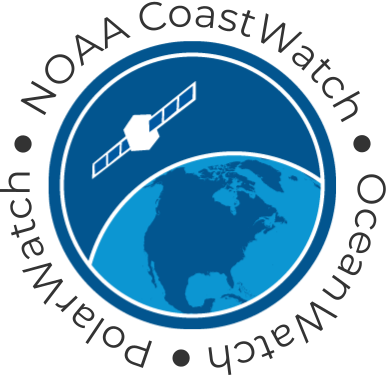| Date |
October 28, 2022
|
|---|---|
| Content Type |
Announcement
|

|
|
| Data Applications |
Climate & Weather
Ocean & Coastal Dynamics
|
NOAA-15 AVHRR scan motor has been having issues. NOAA CoastWatch recommends using other spacecraft and ACSPO products (like the new daily L3S global 2km product) for your sea surface temperature needs. Please connect with the helpdesk at coastwatch.info@noaa.gov if you are looking for additional guidance regarding your switch to alternative SST sources.
The following is messaging from the Office of Satellite Products and Operations (OSPO):
Update #2: As of Oct 27, 2022 (DOY 300), The Scan Motor current continues to trend downwards, currently at ~260 mA. Data quality has improved, and is consistently above 90% per orbit; however, it is still quite a challenge for data applications since there are scattered gaps. Instrument and Data Quality Engineering will continue to closely monitor the AVHRR scan motor as well as the relevant L1b data product.
Update #1: Beginning ~08:00 UTC Oct 24, 2022 (DOY 297), the NOAA-15 AVHRR motor current began to tren1 downwards from ~302 mA, gradually dropping to ~265 mA as of Oct 26. The scan motor appears to have never fully stalled, with the average current value never reaching the stall value of 302 mA, though the max value did reach that value on a momentary basis repeatedly. Data produced is still degraded, though less so than before. This seems to indicate the scan motor may be grinding through debris and a full stall is no longer imminent, but still possible.
Topic: NOAA-15 AVHRR Motor Current Increase Event
Date/Time Issued: October 27, 2022 2138Z
Product(z) or Data Impacted: AVHRR Products
Date/Time of Initial Impact: October 18, 2022 1800Z
Impacts on Users and Significance: AVHRR products are affected.
Date/Time of Expected End: Unknown
Length of Outage: Ongoing
Details/Specifics of Change:
The NOAA-15 AVHRR Scan Motor current began showing signs of instability on Oct 18 at approximately 18:00 UTC, when the current began to gradually rise from about 205 mA to about 250 mA, where it remained until Oct 24. At about 00:00 UTC on Oct 24, the current began rising again throughout the day, peaking at about 302mA on Oct 25. Scan motor temperature began rising about the same time and is currently steady at ~29°C. The instrument is still producing data, but it is highly degraded.
This behavior may be a sign of an impending scan motor stall, but requires further investigation. Options for recovery are limited.
Contact Information for Further Information: ESPC Operations at ESPCOperations@noaa.gov at 301-817-3880 and/or other contacts as necessary
Web Site(s) for applicable information: N/A
